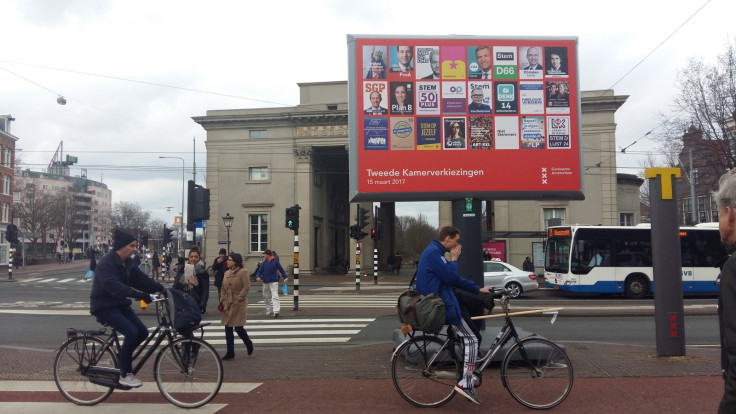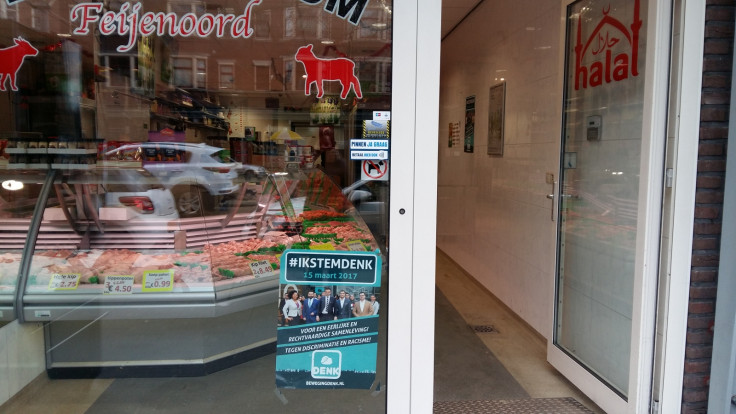Ethnic minorities in Holland look for a political home after 40 years of being labeled as foreigners
The Dutch "from another soil" think their vote in the election matters, but are unsure about who to vote for.
The Dutch language has one word to describe citizens with an ethnic background: allochtonen, meaning those "emerging from another soil", used in opposed to autochtonen: the "natives".
The term is the equivalent of the English "allochthon", a word used in geology to indicate a large block of rock which has been moved from its original site of formation. In the Netherlands, it applies to people who came to the country and later acquired citizenship, as well as people born in the Netherlands, with at least one of their parents born abroad.
Their passport looks the same as any other Dutch citizen: burgundy, with the country's coat of arms emblazoned in gold. But for the past 40 years the people who came to the Netherlands and their children who were born and raised in the country have not been considered completely equal to Dutch citizens.
The term allochtonen was first used in an official publication in 1971 to distinguish people with a foreign background to those with a Dutch background. This was deemed necessary after the Netherlands experienced mass immigration so-called "guest workers" from Turkey and Morocco invited by the Dutch government to work in the country during the economic boom of the mid-1960s. The migrant population further expanded in the 1970s thanks to the family reunification scheme.
By 1989, the term allochtonen was used in a report by the Scientific Council for Government Policy (WRR) instead of the word "minority" as it was deemed less derogatory. But soon the term became associated with prejudices against migrants and people from other ethnic backgrounds.
An example of how ingrained prejudices associated with the word become, a young woman participating in a TV show in which participants have to guess a word by their meaning and first letter, replied with "allochtoon" to the clue "someone not adjusted to life in society" - while the correct answer was "anti-social".
25 years later, the WRR has had to admit that the words allochtonen and authochtonen have assumed such negative connotation they were no longer useful for statistical purposes. On 1 November 2016, the WRR and the Dutch Bureau for Statistics (CBS) announced the decision to stop using them.
According to Sinan Cankaya, an associate professor at the Vrije Universiteit in Amsterdam, the word reinforced a monolithic idea of who is accepted in society. "Allochtonen are perceived as not fully belonging or full citizens, despite having Dutch nationality", he told IBTimes UK. Dutch crime statistics were also compiled reflecting the ethnic background of the perpetrator which, Cankaya argued, merely offered correlation between characteristics rather than an explanation for criminality.

Anti-Islam politician Geert Wilders has been able to use statistics showing higher arrest rates among people of Moroccan origins to flame his anti-Islam and anti-immigration rhetoric. Launching his election campaign in February, Wilders said: "The Moroccan scum in Holland... once again not all are scum... but there is a lot of Moroccan scum in Holland who make the streets unsafe, mostly young people... and that should change."
Wilders was convicted for discrimination at a hate speech trial in December for remarks made at a campaign speech in 2014 in which he rallied the audience to say they wanted "fewer Moroccans". Hate crimes against people of Muslim faith have increased in the past few year. According to data presented by the Dutch police, there were 439 recorded incidents in 2015, more than double the amount registered the previous year. According to the police, Muslim women and men who wear clearly recognisable Muslim clothing such as headscarves were particularly targeted in Islamophobic attacks.
Karim, a Dutch Moroccan living in London, feels worried about what a possible election victory for Wilders would mean for his family. "There are more extreme statements made by politicians that sometimes are scary. I think immigrants are being falsely blamed for a lot of bad things that happen in Holland," he told IBTimes UK.

The son of a Moroccan "guest worker", Karim was born and raised in the Netherlands, graduating from Maastricht University with a degree in marketing. He came to the UK because he struggled to find a job back home. "I always had a sense of lost direction in my life, not really knowing where I belong and where to settle. After a year living in the UK I found more peace with myself and actually saw myself starting a family. Then Brexit came. Now I am back where I was, uncertain about what will follow and how to plan my life," he said.
One thing he knows is that he will vote in the Dutch election on 15 March, for the first time in a while. "I always thought my vote was not going to matter. However now I feel more affected and involved."
Salma, a Rotterdam-born Turkish Dutch, also agrees voting is important in this election more than ever, to contrast Wilders' popularity. "If we don't vote we strengthen Wilders," she said. "The election is a way we can let our voices heard. We need to go to vote if we want to change something." A community organisers, Salma has arranged meetings with local candidates to discuss topics such as gender equality and diversity. Yet, while she decided she will vote, she was not yet sure who to vote for.
Neither did Sharon, who came from Jamaica for love and now works as a nurse. She told IBTimes UK she is concerned about the populist tide in the US, in France and in the Netherlands and the anti-foreigner rhetoric. "After 32 years of living here, I belong here" she said. But like Salma, she also had yet to decide who to vote for. "Usually I vote for PvdA," she said. "But now I am not too sure about which way they are going and if they are really representing me and a lot of other people." For her, what matters is having a party that will stand up against xenophobia.
Who are the "allochtonen"?
Total population in 2016: 16,979,120
Immigrant population in 2016: 3,752,291 (22% of total population)
Breakdown of immigrant population
Western countries: 1,655,699
Non-western countries: 2,096,592, of which:
- Turkey: 397,471
- Morocco: 385,761
- Suriname: 349,022
- Dutch Antilles & Aruba: 150,981
- Other non-western countries: 813,357
© Copyright IBTimes 2025. All rights reserved.






















